Today SevenPonds speaks with Carol Kearns, a retired psychologist who specialized in recent loss issues. Carol lost her own daughter, Kristen, when her daughter was seven years old, and has since dedicated her life to helping others through crisis and sudden loss for the past 30 years. She is the author of a memoir about loss, Sugar Cookies and a Nightmare.
Marissa: What made you want to write a memoir?
Carol: It wasn’t my idea. I was doing a lot of grief work with Elisabeth Kubler-Ross, who was the pioneer in the field of death and dying. When I was at the center one time working with her, she said I needed to write a book. I said, “You know, Elisabeth, I don’t write books. I don’t write. She said, “You need to write, just to tell your story.” When I first wrote this, Marissa, it was so emotional that I thought, “Oh my god, anybody going through their own loss doesn’t want to hear my story. They’ve got their own.” Then I put that aside and focused on getting my doctorate degree.
Elisabeth, every time I saw her, would say, “How’s your book going?” I’m like “Oh, it’s going along fine!” (laughs). Then I went back to the drawing board, and I wrote this book that I thought was fabulous, and I was very excited to show her the manuscript. She was at this point really sick. She had suffered a series of strokes, which left her semi-paralyzed. She needed some help, so I visited her, proudly bringing along my new manuscript, because I thought she was going to love it, love it. After about a couple weeks when I was getting ready to leave, I said, “I’m gonna write down your recipe for sugar cookies,” because she had these famous sugar cookies. She said, “Carol, do you mind if I’m really blunt about your book?” I said “No, no, fine. Go ahead.” She said, “You do not sound like a mother who has lost a child. You sound like a psychologist. You have taken a story that’s black, and you have made it pink and blue. You need to go back and write the nightmare.”
I’m happy that I wrote it, but I never want to write again.
I took my notepad out and started writing. She asked what I was writing, and I said “Sugar cookies and a nightmare.” She responded, “That’s the story of my life, and the title of your book.” I would not have written it if it wasn’t for her. I’m proud of that book, I’m happy that I wrote it, but I never want to write again. (laughs)
Marissa: So this one is it then? (laughs) Since you want this to be your last book, what do you hope people will take away from it when they read it?
Carol: There are two things, and they’re what kept me motivated through the whole writing process. Number one is so many people do not know how to help someone grieving. The more tragic the death, like an infant dying, they really do not know what to do. So the first chapter is dedicated to that issue. Secondly, for bereaved parents, or anyone trying to understand a bereaved parent, you feel like you’re going crazy. Nothing is how you wanted it to be, nothing seems normal. The new normal is so weird, because you fight it. You don’t want it. So it does make for crazy-making. We all go through it because we want our child. We never in our life stop longing for our child. We find a place for the pain, but the longing is always there, and we have to find a place to put it.
Marissa, have you had a child that died?
Marissa: I haven’t, no. I don’t have any children. I have lost people close to me, but not a child. I can imagine when you lose a child, you have to find a new normal.
Carol: It’s something you have to define, but you don’t want to. You want your child, you want your loved one. This is where death is brutal. It’s not like when you’ll get to see them again on their birthdays. You will never, ever see that loved one again, whether it’s your friend, your cousin, you will never see them again. That is so final. This is why our society has such a hard time with it. We’re in the mindframe of staying healthy and being around each other forever. That’s just not the way it is.
Marissa: It seems that sudden deaths are more difficult to process for most people than when they have time to cope with someone dying before it happens.
Carol: You’re absolutely right, because when you have an accidental death, every ounce of grief happens after the loss. If it’s a terminal illness, you may see your loved one suffer, but you have time to say goodbye, you have time to prepare. You are in disbelief for a while, but as you see the reality of what’s happening, you can say your last goodbyes. When I was counseling, I can’t tell you how many times I heard “I wish I would have told him how much I loved him; I wish I would have told her how much she meant to me.” It floods us with guilt.
Marissa: Let’s talk a little about your counseling. What was your specialty?
Carol: I specialized in crisis and loss, so I was trained by Kubler-Ross. I worked with people a lot on gently getting them to confront the loss, the pain. Because my focus was crisis, I was working not with mentally disturbed people, but people who were functioning fine, and then the bottom falls out of their life. A death, a divorce, a diagnosis, a disaster. Any of those D words hit them. They scramble to pick up the pieces, because everything is out of the blue. It brings up their own mortality. It brings up all of their fears. It makes them question so many things, from a spiritual aspect to what’s important in their lives. It can be very complex, but very exciting work.
Marissa: You wanted to teach people how to work through the pain?
Carol: Right. If people are able to face the pain and come through to the other side, it’s like the title of my book. It really does teach you about what’s important in life. It really does make you a better person. I never, ever thought I would say that about Kristen’s death. I really became a better person because of it. I didn’t take things for granted anymore. Elisabeth would say, “Everything ends at death’s door.” Everything. You will never understand life until you understand death.
Marissa: Can we talk a bit about your daughter, Kristen? How did you feel when she first died? What was your healing process like?
Carol: When Krissie first died, we were vacationing on the Oregon coast. She was pulled out by a wave. We never saw her again, so we had no body to grieve. She just disappeared. She was seven. I was a single parent, and my son was nine. They were very close because they were 18 months apart, and they did everything together. Because I was divorced, they would see their father without me, they would visit their grandparents without me, they were never separated.
For Michel [Carol Kearns’ son] and for me, when she died with no body, we just had nightmares for the longest time. We’d have these dreams that she’s on the road, she’s trying to find us. Michael would come in and go, “Mommy, we have to go back, she’s trying to find us on the road.” I would be like, “Oh, Michel… No sweetie, she’s not. She’s not.” I think because we didn’t see the body, we didn’t end anything. We were numb for so long. I was aware that I wasn’t allowing myself to grieve because I’ve never been in a situation like that before. Being a single parent, I was afraid that if I let myself fully go into the grief, I wasn’t sure if I’d come back. Michel just lost his sister, he doesn’t need to lose his mother. I needed to focus on him, and give him the best life he can have. He deserves that. I love him every bit as much as Krissie. He was my lifeline. To have him, I had to have me, and that helped me get through a lot, Marissa.
Marissa: Wow, that is incredible.
Carol: Because it was so terrifying to lose Krissie, I thought “If this can happen to her, then what can happen to Michel?” You get crazy in your fear. I promised myself if I ever got through this, I really wanted to work with others in crisis. There is nothing scarier than not enjoying a sunset, or a bubble bath or a walk with a friend. All of the little things that make life meaningful, when you can’t hang on to any of those anymore, you feel like you’re slipping off the side of the Earth. You have nothing. I think there are few situations in life that are black and white, but losing Krissie to me was black and white. It was either going to completely destroy me, or it would be the greatest growth experience. There is no in-between.
Marissa: It seems like you experienced growth then.
Carol: I met with a bereaved parent yesterday, and she said that I seem to have such a joy for life. She said, “What is that?” I said, “You know, I do. I honestly can say I do.” I didn’t before. I thought, “What gift did Krissie give me?” People would say, “She was so little. How did she change your life? She was only seven. How can you say you learned so much from her?” It’s because I could go for a walk with her and she would point out a butterfly landing on a flower without bending the petals. We’d look at rain on a window pane, and she’d see patterns. We’d see giraffes in clouds. In the world of a seven year old, you see things all around you. “Mommy look, mommy look!” She died at play. She was playing on the beach with her friends when she died. She had such a joy for life. When I look at the gifts she gave me, I don’t want to lose those, Marissa. If the afterlife is as great as it’s supposed to be, the only pain she has now is if her dad and Michel are not OK, that those she loves are not OK. I decided to live the gifts that Krissie gave me, and one was an absolute love of life. An awe for life again. It’s easy to do because I have a 7 ½-year-old grandson. It’s fun because you’re right there with him, looking out at the world, it’s wondrous.
Marissa: So your grandson is the same age as Kristen was when she died? How does that feel? Does that bring up any memories for you?
Carol: Yeah it does. Krissie was exactly his age when she died. I watch him and think, “God, Krissie was so little.” She was just starting her ideas, and the things she really liked, and things she thought she might do when she grows up. I know it brings up memories for my son too, losing his sister at the same age as his son, Joseph. Sadly, I am also a bereaved grandmother. My son, who I think has been through enough with his sister’s death, also had a child die. At the time of birth, she was dead. She was a beautiful, healthy, 8-pound little girl named Emma, and she just died. It set us reeling. This was two years ago. They’re now pregnant again with another child, and it’s gonna be a little boy. I think it also affected Michel because he’s a doctor going into crisis medicine. He’s a critical care physician. He feels the importance of dealing with the physical pain, but Krissie’s death taught him to deal with how important the emotional side is. For a little girl, she was pretty powerful in the lessons she gave us.
Marissa: Both of you went into crisis care? That actually seems fitting.
Carol: Oh yeah. That’s also what I’m hoping to get out of the book. It will show people what I’ve done. You just can’t go the rest of your life carrying this pain. You really have to create meaning from it. That can be as simple as being a better person. You don’t have to start a foundation, you don’t have to write a book, you don’t have to get a doctorate. You just have to look around your backyard.
Marissa: You talk about creating meaning from a sudden loss of a child, especially for parents who lost children to drugs or alcohol. Would you say that’s the most important thing for grieving parents to do?
Carol: Not initially. I would say that’s your goal down the line. Look at your child. Look at what was important to your child. Realize that no matter what, there was a gift. That’s what we grieve about that child. Their uniqueness. What was it? Was it that they cared? Was it that they were really smart? Sometimes you have to dig a little bit, especially if your child has been on the street with drug addiction for a long time. You feel like, “My child has been a bloody nightmare. There wasn’t anything redeeming there.” And yet if you can go back and say, “Wait a minute, I held that little bundle, and that was pretty precious.” Addiction is not a choice. Somewhere in there, there is still a beautiful soul, and you’re gonna have to find it. They may have to work through a lot of pain and anger first.
Marissa: So parents need to deal with their emotions, then find meaning.
Carol: Right. Take a newborn like Emma (Carol’s granddaughter who died as an infant). What did she give? She gave the greatest gift of all. We will never forget Emma. She gave us unconditional love. That is the highest form of love. Newborns, that is the greatest gift before their little soul leaves. They just flood you with love, and they haven’t even taken a breath. To carry Emma’s love forward is really powerful. Most of us have so many conditions about, “Well I will love you if you clean your room, and I will really love you if you do this for me.” If you’re like Emma, you just say, “Well, I just love you.” It’s so beautiful.
Marissa: What about losing a child is unique compared to all other types of loss?
Carol: What you lose is not just their past, but it’s their future. We all have dreams for our children. We go to the wedding of a niece, who was the same age as Kristen (Carol’s daughter who died at age seven), and you know if Kristen were here, she would be a bridesmaid. You see their friends graduating from high school and going on to have careers, and you know that’s exactly what she would have done. And she didn’t get to do it. I remember before Krissie died, she was so excited because she had her new Bluebird uniform. She was so excited for her next meeting, and she never made it. She wore the uniform a few times before the meeting, just to try it out. So just seeing a little Bluebird uniform on a little girl, I think, “Wow, Krissie never got to do that.” When Emma died, we were all in the living room, and Michel (Carol’s son) said, “Mom, if Krissie were here, she’d be sitting right here with me right now.” She’s always there, in some future form that didn’t happen.
Marissa: Parents mourn the future then.
Carol: You wonder what she would have done. Would she have married? Would she have had any children? All of these questions that of course have no answers. That’s what a parent grieves, is that future.
Marissa: How do you overcome that feeling?
Carol: There are several ways you can deal with it. One is initially when this happens, kids sometimes have special clothes, like favorite dresses or whatever. I remember giving Krissie’s best friend her favorite dress. When I first saw the little girl in the dress, it kind of spooked me. At the same time, I had to say to myself, “Look, it’s Krissie’s dress. It was her favorite. She would want Heidi to have it, so get over it.” (laughs) This could not be a better scenario for this dress. I just talk to myself and say, “Really, Carol? Look how happy she is, and imagine how happy Krissie would be knowing she has her favorite dress.”
About 15 years after her death, at a wedding, one of the aunts came up and said, “Krissie’s supposed to be here.” We all cried, but then we just went on. Yes, she’s not here. Yes, she’s supposed to be here, but that wasn’t the plan. God has a different plan. He might be running the show, but it’s OK to get angry at Him. And I did, I was furious. That is a process. It doesn’t just happen. Sometimes when things get painful, I write a letter. I say, “Krissie, sometimes I get so upset when I see dandelions. You used to pick them all the time for me, and those were your favorite flower. Everyone thought they were weeds, but you thought they were beautiful flowers. Every time I see them now it makes me so mad.” I let myself have it. Just say, “I miss having dandelions.” Life goes on. Tides and time stop for no man, and boy, you get lost in the shuffle. You have to choose life, Marissa. You just have to choose it.
Marissa: Would you say it’s important for parents to feel angry when that emotion comes up? To let it through?
Carol: Absolutely. Elisabeth (Kubler-Ross) taught me how to get angry. I was so afraid of it for three reasons. When you were young and angry, you were punished and sent to your room. It was not a good thing. Also, what good does it do to get angry? I need my energy to go forward. All the anger in the world is not bringing her back. The other thing was, I don’t want to get angry at God. What if He gets mad and takes Michel too? It was weird thinking. Especially women have a hard time with anger. We get into a real depression. That depression is usually sitting on a ton of anger that just shuts you down.
Marissa: It seems that women aren’t taught to express anger. We’re taught to take on the role of caretaker, rather than being seen as vulnerable or angry.
Carol: I completely agree. We’re the nice ones. We make everything OK. Sometimes it’s just bloody not OK. I worked with corporations, and would focus on what employees do when they have a sudden loss. What does a company do? They can’t be expected to be back at work in a month or six weeks. A lot of people who I counseled would work with things like, if you don’t want to fall apart in a meeting, and something is coming up about your loved one, we’re very trainable as adults. We can say “I don’t need to do this now. I’m going to take 15 minutes to scream out my anger into a pillow, or tear up yellow pages.” Anger is so physical. We keep packing it on until finally we blow up. We’re humans; we’re not robots. We feel.
Marissa: Thank you for speaking with us!
Carol: Thank you!

 How Do You Recover After the Loss of a Child? An Interview with Carol Kearns
How Do You Recover After the Loss of a Child? An Interview with Carol Kearns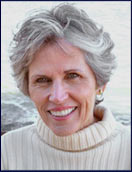
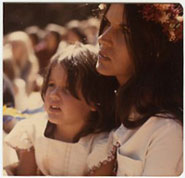
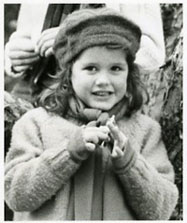
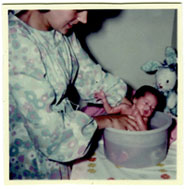
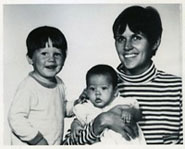
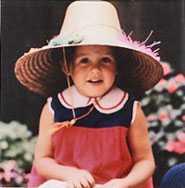
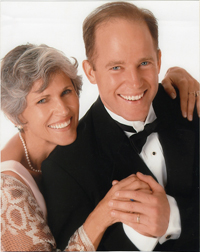



 John Mulaney’s “Funeral Planning” on Netflix: No Real Plan
John Mulaney’s “Funeral Planning” on Netflix: No Real Plan

 Composting Bodies Is Now Legal in a Dozen States
Composting Bodies Is Now Legal in a Dozen States














